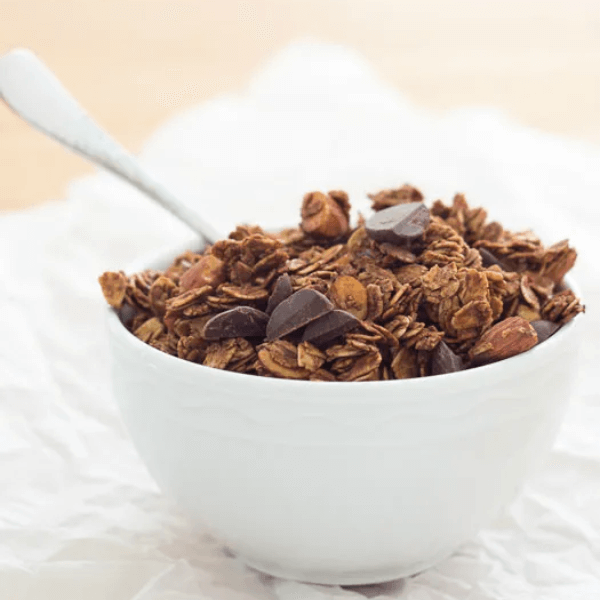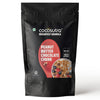Should Diabetics Eat Oatmeal? Benefits, Risks, and Tips
Yes, diabetics can eat oatmeal, especially the less processed forms like steel-cut or rolled oats, as they have a lower GI and are less likely to cause spikes in blood sugar levels.
Managing diabetes requires careful attention to diet, as the foods you eat directly impact your blood sugar levels. One common breakfast choice that often comes up in discussions about diabetes-friendly diets is oatmeal. Known for its heart-healthy benefits and versatility, oatmeal is a popular choice for many. But the question remains: Should diabetics eat oatmeal? In this blog, we'll explore the nutritional benefits, potential risks, and practical tips for incorporating oatmeal into a diabetic diet.
Nutritional Benefits of Oatmeal
Oatmeal is a powerhouse of nutrition, making it a great addition to a balanced diet. Here's a brief overview of its nutritional profile:
- Rich in Fiber: Oatmeal is particularly high in soluble fiber, especially beta-glucan, which slows down the digestion process and helps maintain stable blood sugar levels.
- Packed with Vitamins and Minerals: Oatmeal is a good source of essential vitamins and minerals, including magnesium, phosphorus, zinc, and B vitamins.
- Low in Calories: Oatmeal is a low-calorie food, making it a great option for weight management.
Benefits of Oatmeal for Blood Sugar Control
- Stabilizes Blood Sugar: The high fiber content slows glucose absorption, reducing post-meal blood sugar spikes.
- Promotes Satiety: Helps in controlling hunger, preventing overeating and unnecessary snacking.
- Improves Insulin Sensitivity: Regular consumption of oatmeal can help improve the body’s response to insulin.
Recommendation: Cocosutra offers a range of oatmeal products that are rich in fiber and essential nutrients, making them an ideal choice for diabetics looking to manage their blood sugar levels effectively.
Glycemic Index (GI) and Oatmeal
The Glycemic Index (GI) is a measure of how quickly a food raises blood sugar levels. Foods with a low GI cause a slower, more gradual rise in blood sugar, making them better choices for diabetics.
- Oatmeal’s GI: Oatmeal generally has a low to medium GI, depending on the type. Steel-cut oats and rolled oats have a lower GI (around 55), while instant oatmeal can have a higher GI (around 79).
- Impact on Blood Sugar Levels: Due to its moderate GI, oatmeal can be a good option for diabetics, especially when paired with protein or healthy fats to further lower the overall meal’s GI.
Should Diabetics Eat Oatmeal Based on Its GI?
Yes, diabetics can eat oatmeal, especially the less processed forms like steel-cut or rolled oats, as they have a lower GI and are less likely to cause spikes in blood sugar levels.
Recommendation: Cocosutra’s oatmeal made from Thick whole grain rolled oats are an excellent choice for diabetics, offering a low GI and a hearty, satisfying breakfast option that supports blood sugar control.
Potential Risks for Diabetics
While oatmeal is generally a healthy option, there are a few considerations diabetics should keep in mind:
- Portion Sizes: Overeating any food, including oatmeal, can lead to elevated blood sugar levels. It's important to stick to recommended portion sizes.
- Added Ingredients: Flavoured and instant oatmeal varieties often contain added sugars and preservatives, which can raise the GI and impact blood sugar levels negatively.
- Variations in Oatmeal: Watch out carefully for ingredients in oatmeal specially the flavoured variations. Avoid artificial colours, flavours and preservatives. Instant and flavoured versions often have a higher GI and may contain hidden sugars.
Should Diabetics Be Cautious?
Yes, diabetics should be cautious about portion sizes and avoid oatmeal varieties with added sugars. Sticking to options that have clean ingredients, whole oats with additions like natural flavourings like cinnamon, cocoa or nuts and seeds are healthier options.
Recommendation: Cocosutra’s oatmeals are a perfect base for creating a diabetic-friendly breakfast. By avoiding added sugars and artificial ingredients, these oats help you maintain control over your blood sugar levels. They come in exciting and delicious variations like Vanilla Almond, Chia Chocolate and Mocha Cranberry.
Tips for Incorporating Oatmeal into a Diabetic Diet
Here are some practical tips to help diabetics include oatmeal in their meals:
- Opt for Steel-Cut or Rolled Oats: These types have a lower GI compared to instant oats.
- Add Protein or Healthy Fats: Pairing oatmeal with protein (like Greek yogurt or nuts) or healthy fats (like chia seeds or almond butter) can help stabilize blood sugar levels.
- Watch the Portion Size: Stick to ½ to 1 cup of cooked oatmeal to avoid overeating.
- Avoid Sugary Toppings: Use natural sweeteners like stevia or fresh fruits instead of sugar or honey.
Oatmeal Preparation Options to Avoid if You Have Type 2 Diabetes
- Instant oatmeal with added sugars
- Oatmeal with sugary toppings like syrup or brown sugar
- Overly large portions that may lead to blood sugar spikes
Other Health Benefits of Oatmeal
- Heart Health: Reduces cholesterol levels.
- Digestive Health: Supports healthy digestion and regular bowel movements.
- Weight Management: Promotes feelings of fullness and aids in weight control.
Recommendation: For a diabetic-friendly breakfast, try Cocosutra’s oatmeal. It is made with whole grain rolled oats and healthy toppings like cocoa, nuts or seeds. Their oats are minimally processed, ensuring that you get the full nutritional benefits without unwanted additives.
Conclusion
Oatmeal can be a beneficial part of a diabetic diet when consumed mindfully. Its fiber content, moderate GI, and nutritional value make it a great breakfast option. However, it’s essential to choose the right type of oatmeal, watch portion sizes, and avoid added sugars to maximize its benefits. By incorporating oatmeal wisely, diabetics can enjoy a nutritious, heart-healthy meal that supports blood sugar control.
Recommendation: Explore Cocosutra’s range of oatmeal products, to find the perfect, diabetes-friendly option that fits your lifestyle. https://cocosutra.com/collections/oatmeal and check out delicious oatmeal recipes at https://cocosutra.com/blogs/recipes/tagged/oatmeal
References
- Diabetes UK. (2023). "Understanding Carbohydrates and the Glycemic Index - https://www.diabetes.org.uk
- American Diabetes Association. (2023). "Food and Fitness: Eating Well." - https://www.diabetes.org/healthy-living/recipes-nutrition
- Harvard Health Publishing. (2023). "Glycemic Index and Diabetes." - https://www.health.harvard.edu/diseases-and-conditions/glycemic-index-and-diabetes
















 Someone viewed SUGAR FREE Drinking Chocolate Mix - Mexican Spiced. 28 mins ago
Someone viewed SUGAR FREE Drinking Chocolate Mix - Mexican Spiced. 28 mins ago Someone purchased Swiss Vanilla Hot Chocolate Travel Friendly Gift Hamper | 20 Single Serves. 4 mins ago
Someone purchased Swiss Vanilla Hot Chocolate Travel Friendly Gift Hamper | 20 Single Serves. 4 mins ago Someone viewed Mocha | Sugar Free Drinking Chocolate Hamper. 7 mins ago
Someone viewed Mocha | Sugar Free Drinking Chocolate Hamper. 7 mins ago Someone viewed Peanut Butter Chocolate Chunk Breakfast Granola | 1 Kg. 15 mins ago
Someone viewed Peanut Butter Chocolate Chunk Breakfast Granola | 1 Kg. 15 mins ago